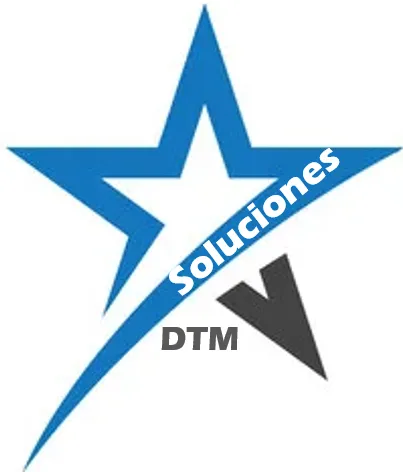You can even create your own financial app that employees can easily download to their mobile devices for better financial management and tracking on the go. Finally, both platforms also provide some basic accounting tools for small business owners, although QuickBooks goes far beyond Quicken in this regard due to its focus on business users. The primary features that stand out among these two platforms vary significantly because the use case for each is so different. QuickBooks is geared towards automating the accounting practices for small businesses.
QuickBooks Advanced
QuickBooks offers an extensive set of features for businesses, including advanced payroll services, inventory tracking, and customizable invoices. These features are essential for business owners but may exceed the needs of someone managing personal finances. It’s a popular choice for managing personal finances and small business accounting because of its user-friendly interface and features like budgeting, bill tracking, and investment management. For those interested in cloud hosting, Sagenext offers a 7-day free trial and is a top service provider.
Related Financial Product Reviews:
The following table examines both QuickBooks and Quicken in terms of five different key features. Quicken does not have the same type of business capabilities that QuickBooks can provide. If you are looking for software to improve your businesses’ financial health, QuickBooks is the obvious choice. Business owners have the ability to a full setup of their bookkeeping with the Live Bookkeeping add-on. It is a small $50 one-time fee and allows a professional to sync all of your accounts, automate repetitive tasks, and teach you the basics of the software.
User Reviews: QuickBooks Online Wins
- Just remember, Quicken is primarily for personal finances or limited small businesses.
- The Premier plan is best for someone looking to maximize their current investments and expand the current capabilities of the software.
- Quicken provides a comprehensive suite of tools for personal finance management, from budgeting to investment tracking.
- Additionally, it is primarily designed for personal finance, which may not meet the needs of larger businesses.
This all-in-one financial management approach is perfect for sole proprietors and freelancers who need to manage their personal and business expenses in tandem. The pricing structures of QuickBooks and Quicken highlight their distinct target audiences and features. QuickBooks is designed for businesses and operates primarily on a subscription-based model.
- You also gain access to a full array of investment tools like portfolio analysis, returns vs. the market, cost basis tracking, Schedule D tax reports, and buy/sell insights.
- The features you most need are income tracking, expense tracking, and automated expense recording after you link your accounts to QuickBooks.
- It can be set up to track expenses made with credit or debit card accounts automatically.
Quickbooks vs Quicken: integrations
QuickBooks Desktop’s mobile app isn’t nearly as robust as its Online plan. Instead, it mainly functions as a tool to upload and organize receipts to make tax time easier. For a higher plan, QuickBooks also allows you to manage payrolls and inventory. One key difference between QuickBooks vs Quicken when it comes to cost is how it affects the number of users using the account. QuickBooks allows multiple users based on the plans, while Quicken only allows one user.
You can opt for Payroll Core and either Simple Start ($85 per month) or Essentials ($115 per month). Alternatively, you could go for Payroll Elite and Plus ($229 per month). As with elsewhere, QuickBooks is currently running a promotional offer, so you would get the first 3 months of those bundles at 50% off. As with the QuickBooks plans outlined above, the Payroll plans are currently available at half price for the first 3 months of a year-long contract. In other words, Payroll Core would cost $25 per month for the first 3 months, and so on. Our partners cannot pay us to guarantee favorable reviews of their products or services.
Available features are tailored towards different customers, so first you must decide what you need most. In contrast, Quicken primarily integrates with financial institutions to facilitate direct transaction downloads, simplifying the reconciliation of bank accounts and credit cards. While it offers limited integrations with investment platforms or bill payment services, its main focus is consolidating personal financial data within its ecosystem.
Comparing Quicken and QuickBooks is a bit like comparing apples and oranges. Both are financial management tools and even share a few features and functions, but the two software programs are built for different uses. It also has more features for personal finance, such as the ability to track investments, keep track of rental properties and create debt reduction plans. On the other hand, Quicken doesn’t offer monthly payments so you have to pay $35.99 to $77.99 every year or $103.99 a year for its special Home and Business plan. QuickBooks provide free trial with additional features whether Quicken doesn’t come with any free trial, but there is a 30-day money-back guarantee attached to the plans. The use case and your budget will be the two largest driving factors in making your decision.
QuickBooks Online outclasses Quicken in terms of features, offering a comprehensive accounting solution. I like that its double-entry bookkeeping system allows you to easily track invoices and manage bills, making it ideal for businesses requiring robust accounting tools. quicken vs quickbooks Quicken is designed to simplify personal finances, making multiple accounts easier to manage. For instance, you can monitor your account balances, budget, debts, and investments in one place. Quicken is great for managing your personal finances, but there are other options worth considering out there.
Our industry experts understand all of these and analyze each software with expertise. This guide contains all research, data, and insights gathered from the most credible sources available. Keep reading to learn which platform will improve your financial management best. It offers detailed tools for monitoring stocks, certificates of deposit and real estate, among other financial vehicles. Perks include performance tracking, portfolio analysis and access to Morningstar research.
You can’t have unique invoice designs with Quicken since you can’t rearrange the layout. Yes, Quicken is less expensive than QuickBooks at prices that range from $5.99 to $10.99 per month, billed annually. QuickBooks charges $35 to $235 monthly, depending on the features and number of users you need.
Quickbooks vs Quicken: what are the main strengths and weaknesses for your business
For those who need one-on-one assistance, Quicken does provide customer support through channels such as phone and chat. Although the response times may vary, many users find that these channels offer the necessary guidance to resolve specific issues. However, it is worth noting that for after-hours problems, users may need to wait for the next business operating day, which could be a small impediment for users needing immediate help. The Premier plan is best for someone looking to maximize their current investments and expand the current capabilities of the software. You receive every feature in the Deluxe plan, along with a list of new tools to make the platform even more efficient.
There are impressive retirement planning features in Quicken to lay out your plan and see where you are headed. Set your own retirement goals and see what you need to save on a weekly, monthly, and yearly basis to accomplish them. Quicken gives you access to reconcile bank statements and check your recorded transactions in one place. You can either print an invoice or send it directly to your customer right from the QuickBooks portal. It’s much more budget-friendly and boasts a simpler subscription scheme. QuickBooks Online can track stocks, incoming POs, inventory costs, and COGS.
Quicken also makes staff support accessible through the website’s live chat or by phone, from 5am-5pm PT on Monday-Friday. There’s also a community forum that lets users ask each other additional questions. Cassie is a former deputy editor who collaborated with teams around the world while living in the beautiful hills of Kentucky. Prior to joining the team at Forbes Advisor, Cassie was a content operations manager and copywriting manager. No, Quicken and QuickBooks are generally not designed to work together in a direct, integrated way.
With QuickBooks, you’ll be able to organically track tax details on all projects and expenses. Notably, tax deduction maximization tools are available across all plans, ensuring an accountant can be easily brought into the software as a guest. QuickBooks lets each user create a budget based on their accounting data, letting them review, edit, and run financial reports using their own custom budget. Users can also match projected sales and expenses against the actual ones, gaining insights into how to tweak their budget in the future. For very small businesses or individuals, the cost-benefit would depend on their specific needs.



